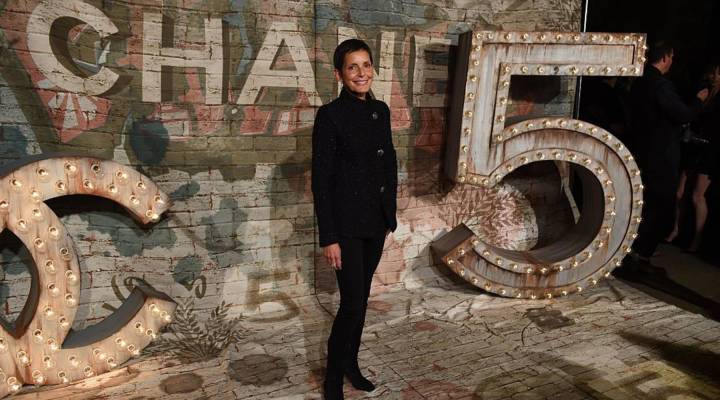
Why a former Chanel CEO purged her closet

Last year, as reported by the Wall Street Journal, sales of personal luxury goods like designer clothing and accessories declined for the first time since the depths of the recession in 2009. Maureen Chiquet has had a front-row seat to changes at the very top of the retail food chain. After working for iconic brands like L’Oreal and Gap, she spent nine years running French luxury retailer Chanel. Marketplace host Kai Ryssdal talked with her about her new memoir “Beyond the Label: Women, Leadership and Success on Our Own Terms.” The following is an edited transcript of their conversation.
Kai Ryssdal: You start this book with a shopping spree. Because you left Chanel, and you basically chucked your whole wardrobe, or you put it in storage or something, right?
Maureen Chiquet: I definitely put it in storage. Yeah.
Ryssdal: Quite symbolic. I mean, there was clearly a lot going on in your mind at that time.
Chiquet: Yeah, it’s funny. I had worn a uniform, for what, 13 years since I’d been at Chanel. And it was composed of things from my wardrobe before, like jeans and tank tops, but literally almost every outfit had a Chanel jacket. And in a way, it had started to identify me. So the symbolism of actually going through and purging and cleaning my closet was really about reclaiming who I was originally.
Ryssdal: Well, it’s interesting because you say in this book that you are not frilly and you are not fussy, and yet you have a very finely tuned sense of style, clearly, were working for Chanel. The question that has to be asked is, how does a woman from St. Louis wind up one of running the world’s most-recognized luxury brands?
Chiquet: I think taking a very unorthodox route. For me, it all started with goat cheese. I know that sounds really strange, but it’s true. I mean, my senses got blown wide open by being in France for the first time and really soaking up all the beauty, and loving the way that the French could take in beauty and appreciate it. I ended up going back several times through college. After college, I had no sense of any idea of what I could do and wanting desperately to go to France. And that was my first job at L’Oreal. So anyway, long story short from the Gap back to the Gap and into Chanel later on.
Ryssdal: Well, talk to me about the consumer in retail today. Because American consumers or really globally, consumers are notoriously fickle. The stakes that you and all retail play on are extremely high. How do you use gut and data?
Chiquet: Yeah, well, first of all, I think the consumer has changed, and there have been major massive disruptions in the business. Obviously, the internet and what that’s done to the way that we shop and what we expect from brands. And then, of course, these millennials and Generation Y and Z, however you want to call them, have so many different values and are making decisions with a different frame. So, I think that does require us to look different. Look at data but also to tap into what this generation cares about, and what’s going on in the world, and how they’re shopping.
Ryssdal: Once you finish the book tour and all of that and whatever, I guess, side consulting gigs you have, do you have any desire to get back into retail?
Chiquet: You know, it’s so funny. I every job I’ve had has come from some kind of inspiration. You know, I left for France to work at L’Oreal mostly because I loved Paris. I loved France. I “fell into the Gap” because I saw that poster from Miles Davis.
Ryssdal: Oh, right, if you remember those ads from the ’70s or whenever it was.
Chiquet: Exactly. You know, I saw that poster of Miles Davis, and he was wearing a Gap T-shirt. And I ended up going to Chanel because I read about her and her story and how she changed the way women could dress. And so my answer to you is, if the inspiration is there, then yes. But who knows.
Ryssdal: Maureen Chiquet, used to be the global CEO of Chanel, her new book is called “Beyond the Label.” Maureen, thanks a lot.
There’s a lot happening in the world. Through it all, Marketplace is here for you.
You rely on Marketplace to break down the world’s events and tell you how it affects you in a fact-based, approachable way. We rely on your financial support to keep making that possible.
Your donation today powers the independent journalism that you rely on. For just $5/month, you can help sustain Marketplace so we can keep reporting on the things that matter to you.












